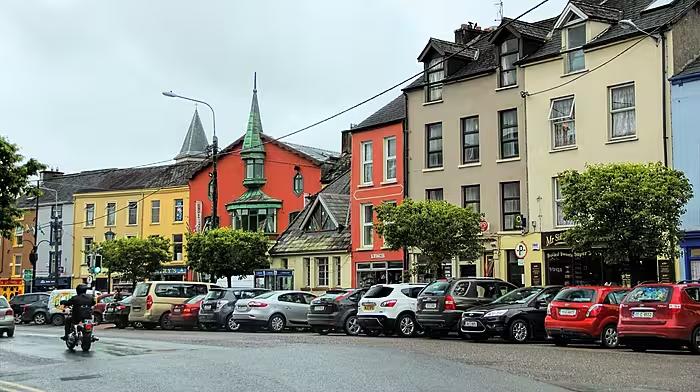SIR – Both your front page and your editorial (1/12) address the proposed controversial redrawing of the Municipal District boundary, which would cut off Clonakilty from its environs.
SIR – Both your front page and your editorial (1/12) address the proposed controversial redrawing of the Municipal District boundary, which would cut off Clonakilty from its environs. The public concern is justified, but attention should also focus on how and why such arbitrary decisions come to be made.
In 19th century Ireland, local government evolved on the basis of the ‘Rural District’, comprising the typical market town and the hinterland it served – a logical, practical and potentially democratic model. (Clonakilty’s RD naturally included those areas now to be divided off).
That system was abandoned in 1898 in favour of reviving the feudal/colonial county divisions, and segregating off the towns into Town-Borough Councils, which had limited functions.
After independence, our central government steadily whittled away local authority powers, culminating in the ‘reform’ of 2014.
That misdirected surgery abolished the last remaining tokens of local democracy, the Town Councils, and invented this strange beast, the Municipal District. (The title is a deliberate misnomer, since a municipality is, by definition, a self-governing entity).
Under this new dispensation, Co Cork’s largest town, Carrigaline, was split between two districts, clearly demonstrating that the underlying rationale was not local community benefit, but bureaucratic convenience. And West Cork was allowed a new district stretching for over 100 km from Dursey to Courtmacsherry; for comparison, that equals the distance between Dublin and Armagh, taking in seven elected local authorities. Looking further afield, the basic unit of local government in Germany, the ‘Gemeinde,’ has typically an area and population similar to Clonakilty town and outskirts.
The absurdity of the current proposal should be no surprise, given the autocratic top-down decision-making process, which requires no direct consultation with the local communities most affected. The prolonged administrative shambles surrounding the Cork city boundary extension – which triggered this local problem – is another symptom of that political failure.
It seems clear that to restore any meaning to the term ‘local government,’ some well-directed political pressure will be needed. Our elected representatives – all of them – must be called to account on this issue. Clonakilty can lead the way, on behalf of the rest of us.
S O’Mahony,
Gurteennakilla,
Ballydehob.







